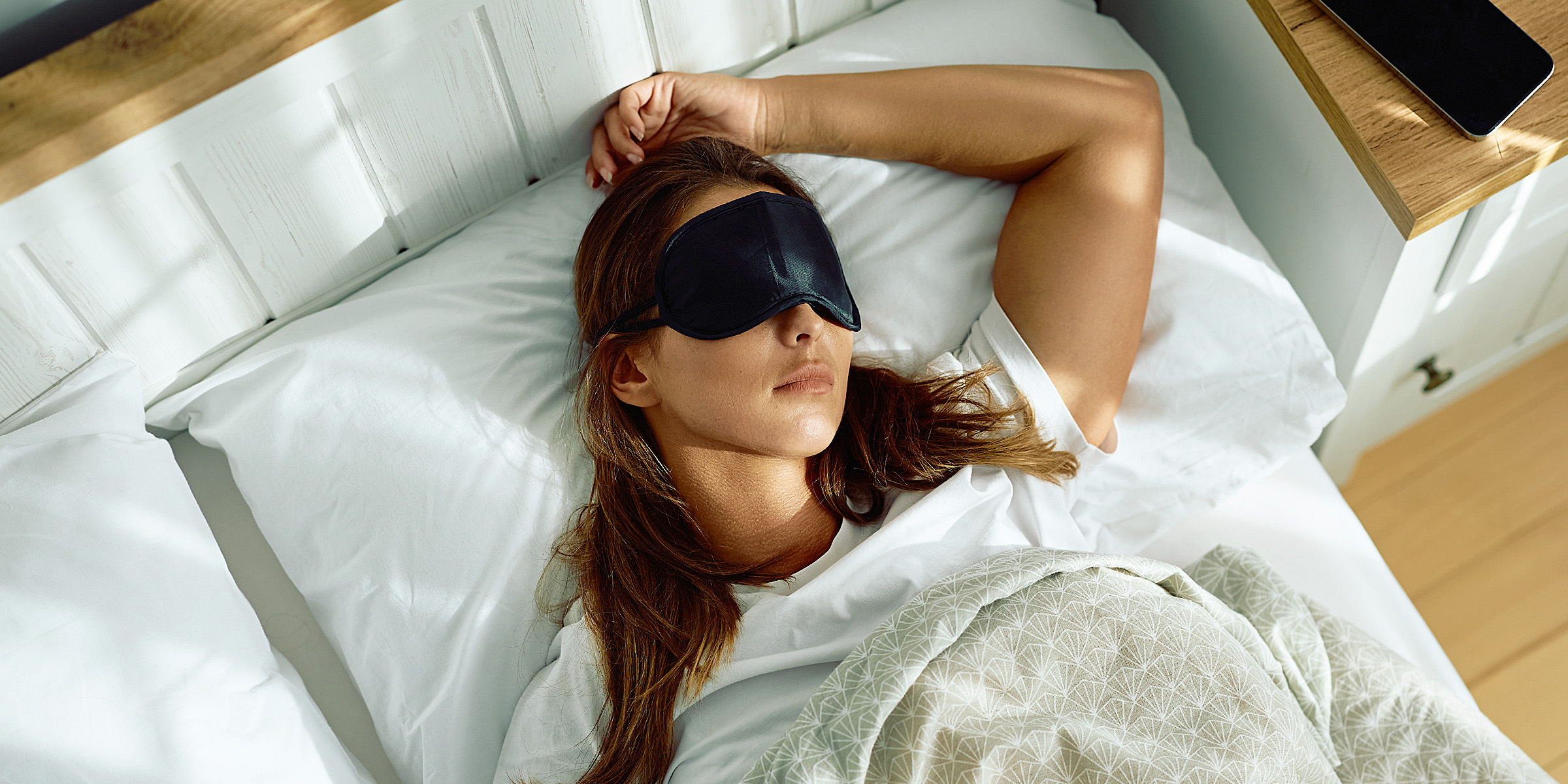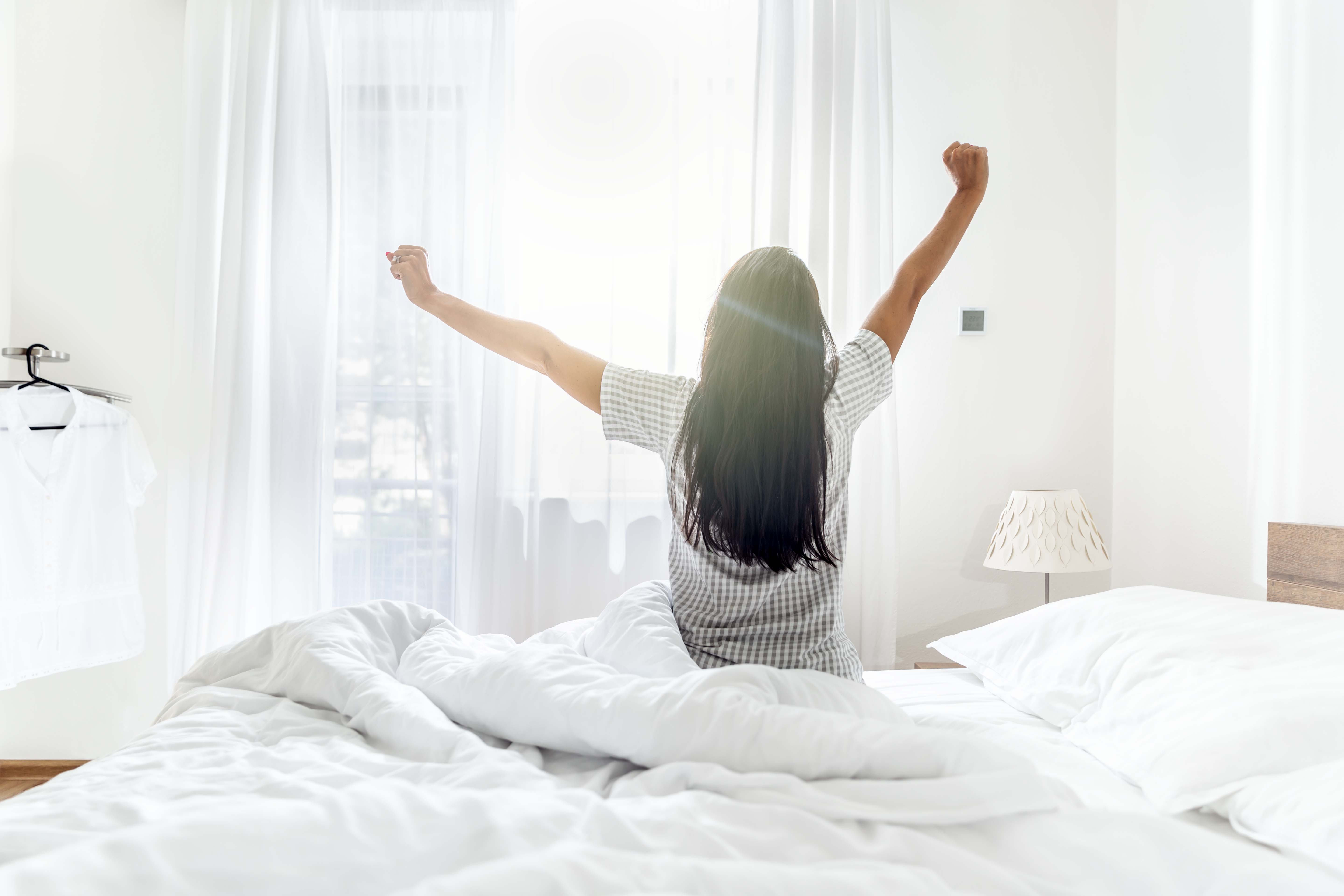
The Power of Rest: Why Sleep Should Be Your Non-Negotiable Priority
As our lives become more fast-paced, getting a good night's sleep has become somewhat of a luxury — and it shouldn't be this way. Here's why getting enough rest should be non-negotiable for you.
Although sleep is widely recognized as essential for overall health, it's something that many people have begun to take for granted. Getting enough sleep on a consistent basis provides numerous physical, emotional, and mental benefits.
Advertisement

A woman waking up to a bright morning | Source: Getty Images
Advertisement
But when you regularly neglect rest, you increase your risk of experiencing harmful effects on your cardiovascular system, weight, metabolism, memory, and mood, as well as raising your likelihood of developing diabetes, Alzheimer’s disease, and immune system problems.
As Matthew Walker, Ph.D., a sleep expert and Professor of Neuroscience and Psychology at the University of California, explains, "Sleep is not an optional lifestyle luxury, it is a non-negotiable biological necessity. It is your life support system."
Advertisement
He added that sleep is "the most effective thing" we can do each day to reset our brains and our bodies. Here's why getting enough sleep daily should matter to you.

A woman waking up from sleep | Source: Getty Images
Advertisement
Why People Aren't Getting Enough Sleep
According to the Center for Disease Control and Prevention (CDC), one in three U.S. adults have reported not getting the recommended amount of sleep.
Saurav Luthra, MD, a board-certified sleep medicine physician at The University of Kansas Health System, partially attributed this statistic to sleep disorders, though he also noted there are other factors that contribute to sleep issues
Advertisement
Michael Breus, PhD, a double board-certified clinical psychologist and sleep specialist, agreed. "It's about priorities and creating healthy habits in the right environment. When you have a routine, it works, your body responds to it," Dr. Breus added.
"Yes, it requires some discipline, but you can figure out a system for you, and it can still be effective," he explained, adding that you can't sleep in an environment that's not "sleep friendly."

A sleepy young woman | Source: Getty Images
Advertisement
Why A 'Sleep-Friendly' Environment Is Important
Dr. Breus recommends evaluating your bedroom to determine what hinders you from getting a good night's rest. For example, if you wake up sore in the morning — more than you would after a good workout the day before — then you may need a new bed.
Having sheets and blankets that help you stay cool during the night can also make a big difference.
"I believe that sleep is a performance activity, just like being a running you perform better when you have the right equipment, sleep acts the same way, when you have the right bed, pillow, sheets, lighting and sound and temperature, you will sleep better, it's really that simple," Dr. Breus said.
Advertisement

A cozy bedroom | Source: Getty Images
Advertisement
How Much You Sleep You Need Is Somewhat Subjective
Although the general recommended amount of sleep is seven to nine hours per night, which is what most people need, Dr. Luthra notes that people's sleep needs are different.
Some people can function well on as little as four hours, due to a rare gene that allows them to thrive on short sleep — but this is uncommon.
"In general, I say don't sleep more than 9 hours or spend more than 8 to 9 hours in bed, because it's typically not helpful after that time, and if you are needing that, then there is some hypersomnia condition," Dr. Luthra said.
Advertisement
Additionally, Dr. Breus recommends waking up at the same time every day to regulate your internal clock, including weekends. "Your sleep will improve automatically," he said.

A woman stretching out of bed in the morning | Source: Getty Images
Ultimately, getting quality sleep isn't just about feeling rested — it’s about giving your body and mind the foundation they need to function at their best.
By prioritizing consistent sleep, maintaining a healthy routine, and creating a restful environment, you can improve nearly every aspect of your health and well-being, one night at a time.
Advertisement
The information in this article is not intended or implied to be a substitute for professional medical advice, diagnosis or treatment. All content, including text, and images contained on amoMedia.com, or available through amoMedia.com is for general information purposes only. amoMedia.com does not take responsibility for any action taken as a result of reading this article. Before undertaking any course of treatment please consult with your healthcare provider.
